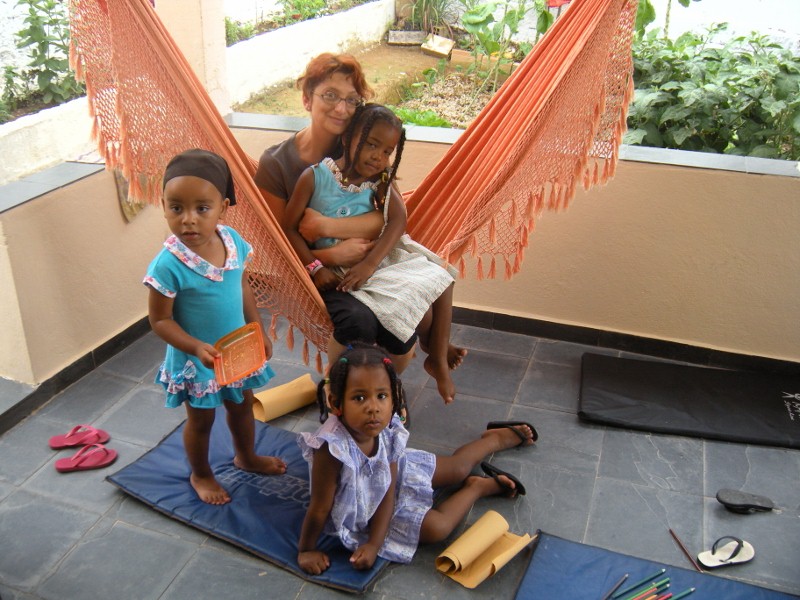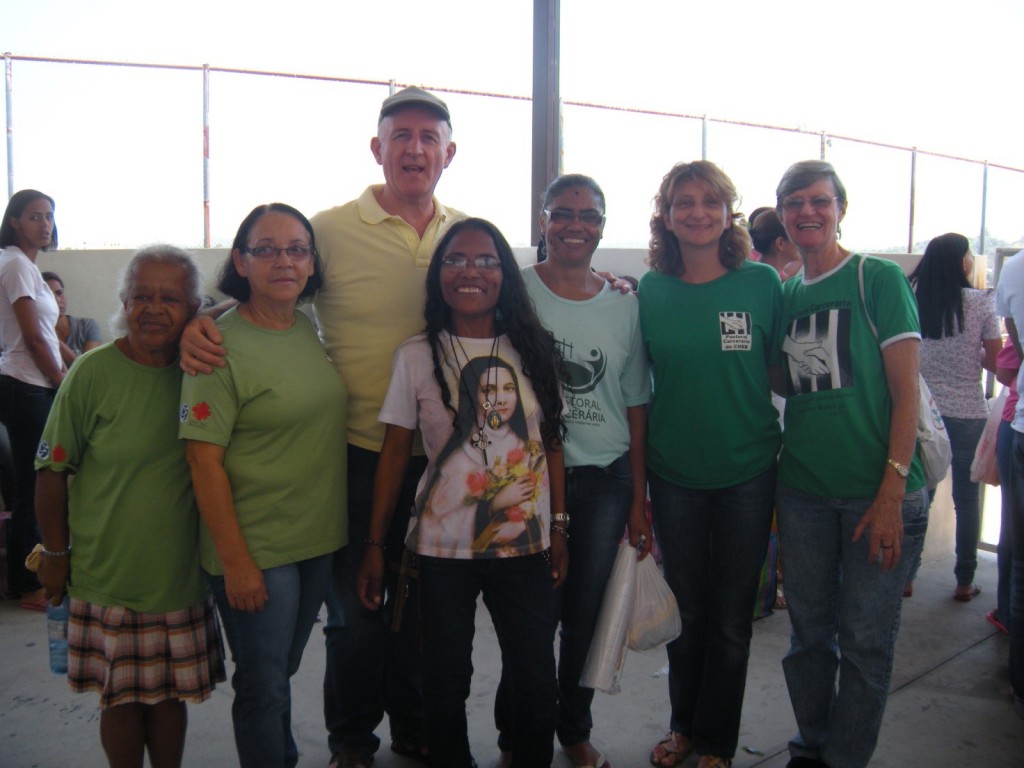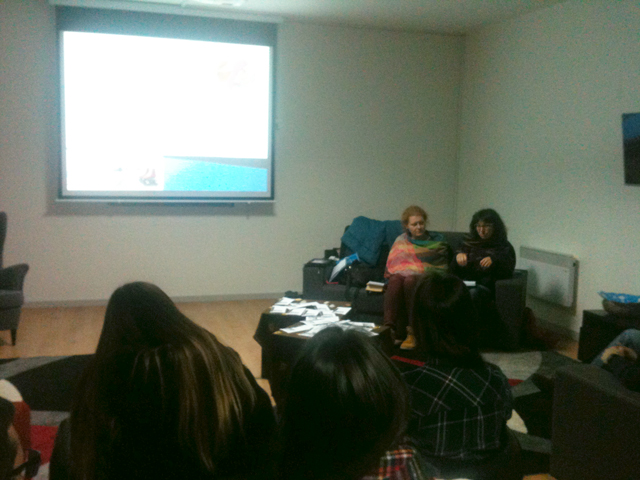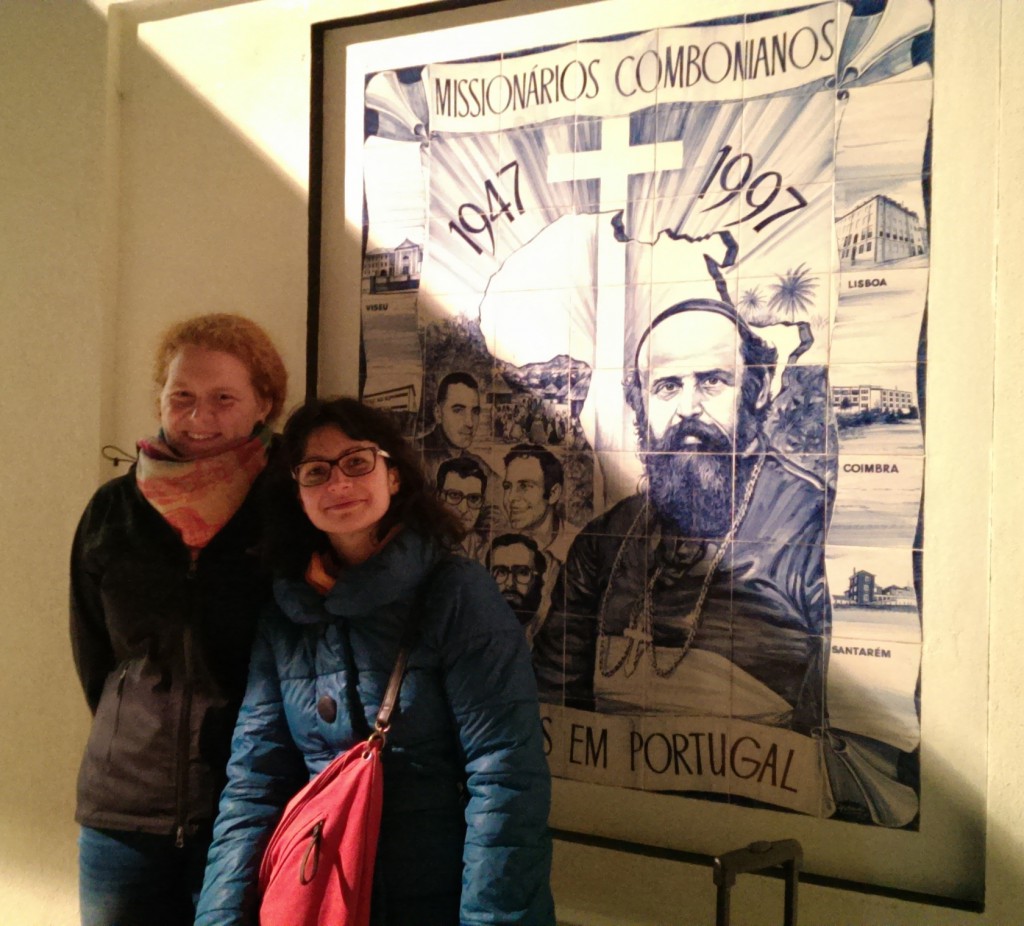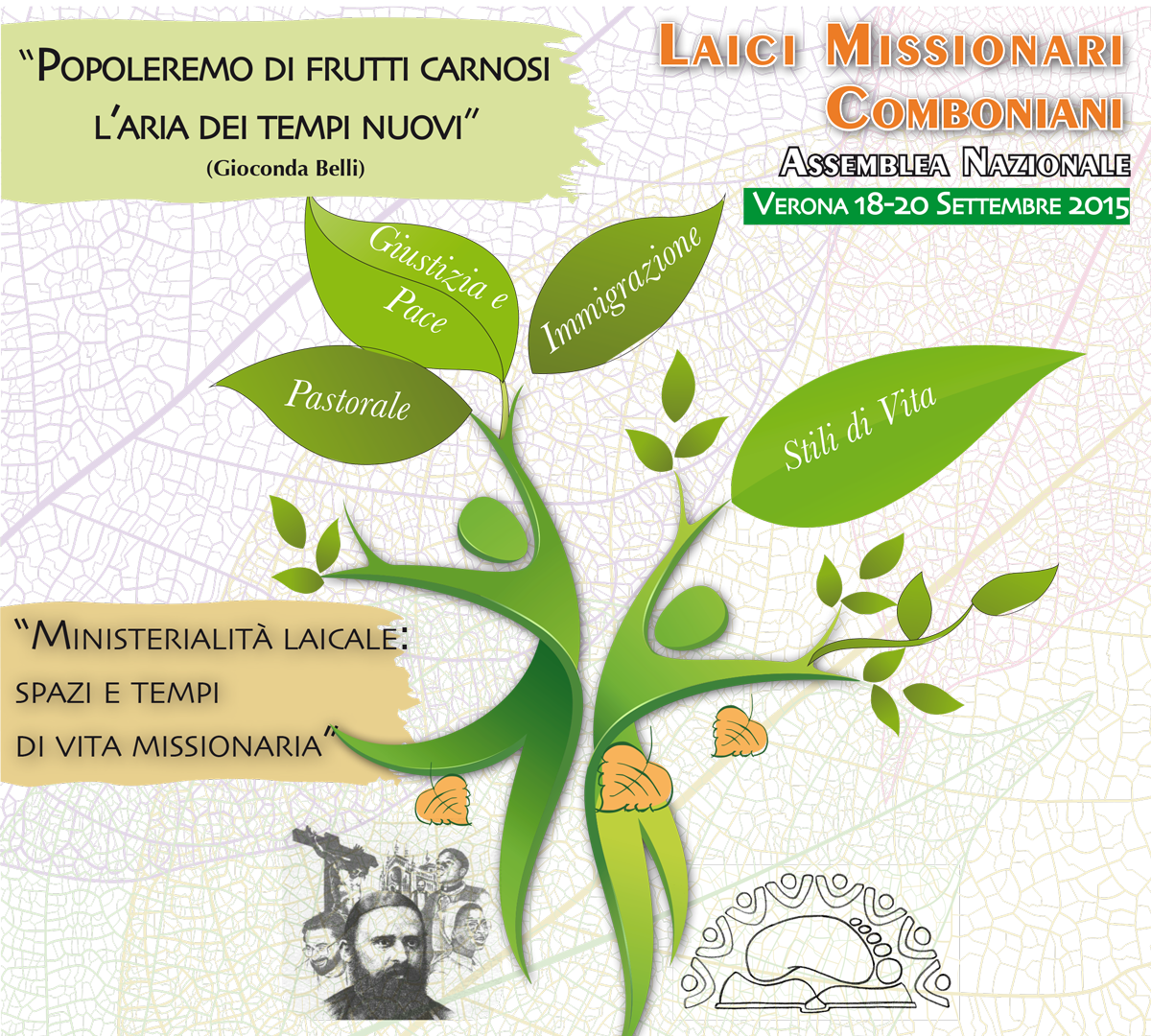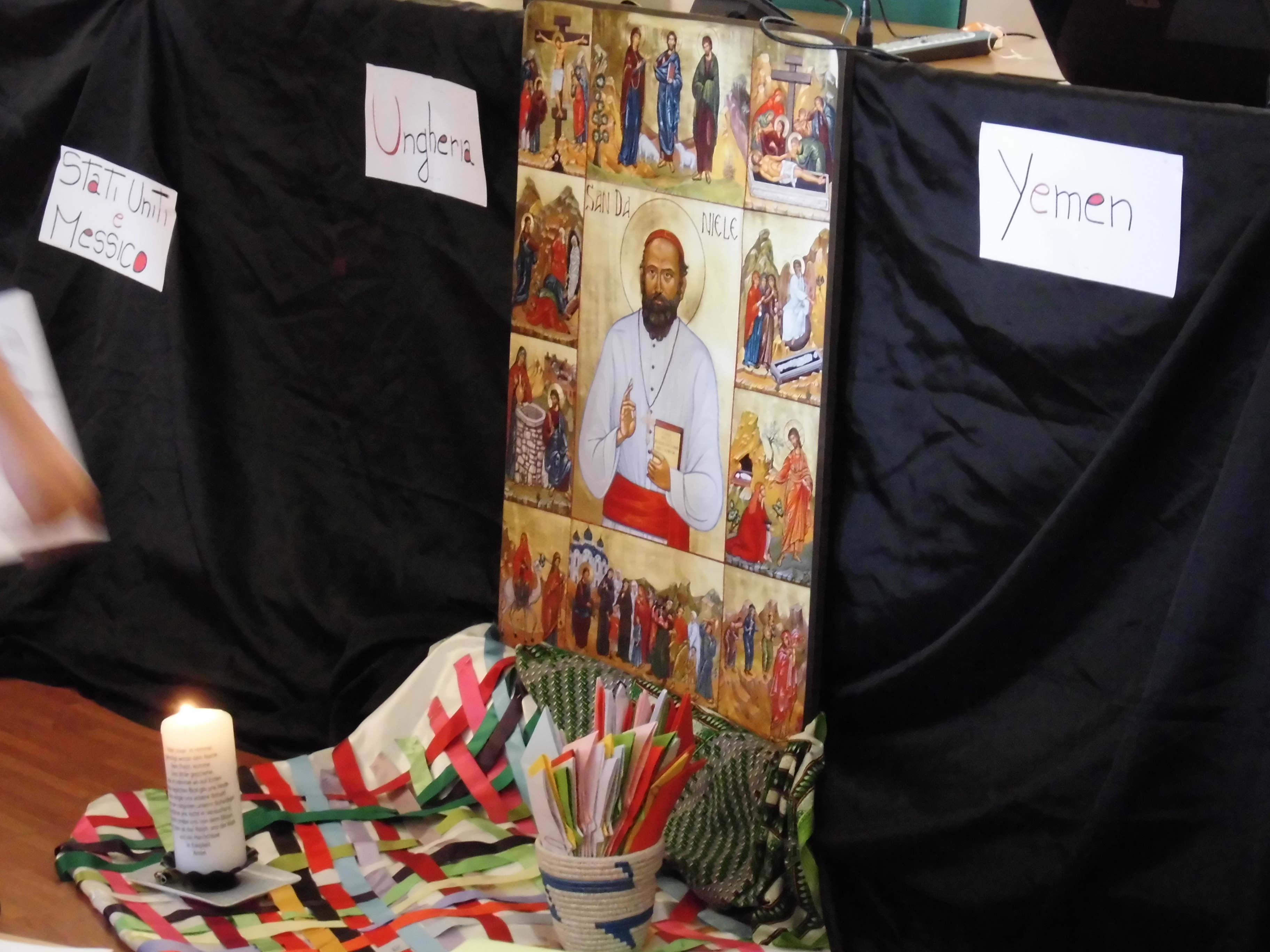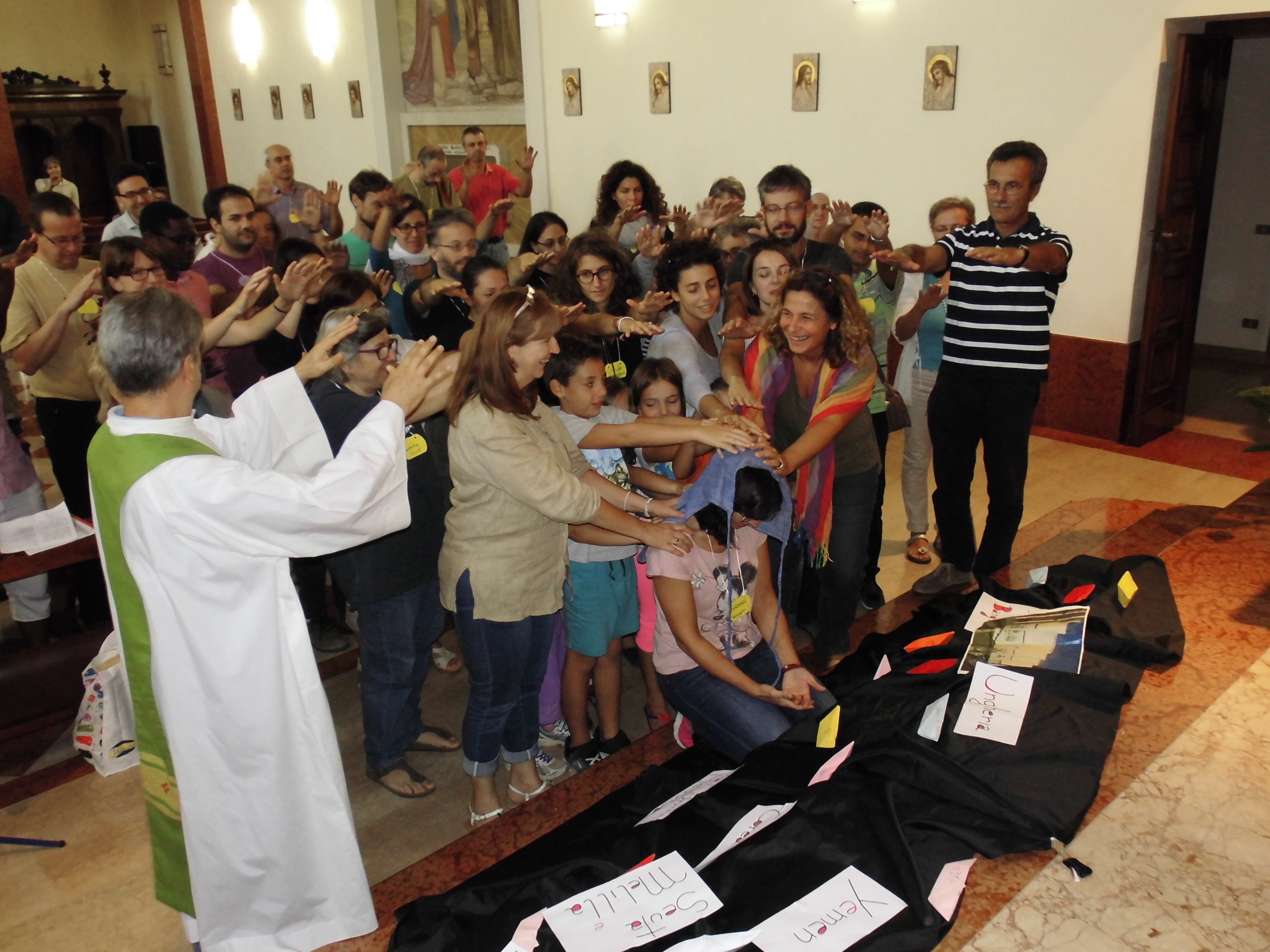Five months have passed since my arrival in Brazil, I arrived on December 1, 2013 in Nova Contagem, on the outskirts of Belo Horizonte, Minas Gerais.
The first months were not easy, as all beginnings, because of the new culture, language, customs, way of doing things very different from mine, in a place that I did not know. You have to go to mission open to re-learn and be patient with yourself and others, give yourself time to enter, find, meet, hear, interact, listen and understand. You have to know how to create a culture of encounter with the other and their difference, their time, their thoughts that allow us to identify the coordinates where you and me can start a shared way. We should not just relate superficially but, we have to “touch-meet” and be “touch and meet”, being willing to change. It is not easy when we are adults, when we have our own formation, our own way of thinking, it is sometimes painful, difficult, but it is important and enriching. Re-learn to know how to accept, re-learn to wait, to know how to re-learn to grow and, above all, know how to love. On mission, you have to be with your head, feet and heart, otherwise you live a partial and limited experience. In these five months, I have learned to do this and I still do, every day, with the difficulties and the problems that this entails.
I realized that I am finding God in a different way; I am living in a different way. The depth of gestures, events, situations, places, creates a dialogue with Him, more intense and deep. Share the Word of God in a small brick house, simple and poor, has a completely different feel and a perspective completely different.
Here in Nova Contagem I got involved in prison ministry, visiting the prison. Prison is an environment, hard, difficult, with many challenges. The first are those bureaucratic and time it takes to get to the identification and review. Most of the time I relate to prisoners standing behind an iron gate in a small space where you have to reach out for a handshake, negotiating with the bars. Are important moments of encounter, listening times, to greet, to promote human rights (prison ministry also aims to denounce the inhuman and unjust situations) and share the Word of God. It is an “intense” moment to pray the Our Father, hand in hand, with all the difficulties of the bars and then conclude with a round of applause to thank everybody.
In addition to the prison ministry, I am starting to learn the APAC (Association for the Protection and Assistance to the Convicted) system. It is an alternative to the prison system, where there is respect for the person and dignity. No police in these structures, no humiliating reviews, volunteers and the prisoners themselves run everything. An innovative system that does not punish, but educate and are educated together. Living the two experiences: APAC and prison allow me to see the differences, see how in APAC people is recover and in the penal system do not, because on one hand there is the respect for the individual and the importance of the person in prison, on the other hand the imprisoned is considered a waste of society, worthless.
They are two completely different worlds.
In the community of Ipê Amarelo, where I live, I help in the pastoral care of children. Up to now, I am dealing with families visiting and invite then to weigh each month as a form of control to combat and prevent situations of malnutrition, undernutrition and obesity. Going into some of the houses, which opens to me a reality made of so much poverty and deprivation.
Finally, another important moment in my missionary experience is the family group of addicts (drugs and alcohol). People involved are simple people, often women, mothers or wives who share stories of hardship and pain (who lost a son because he killed, who have a child who is using drugs, a husband with alcohol problems). The instrument of this group is simply to share and listen, tell us how to make a change. And direct individuals seeking recovery by offering help and support. There are a lot of strength and a lot of faith in these people, it is a group that “transform me” every time I participate. Every Tuesday I am pleased to participate and return home converted.
Meaningful to me is life in community, planning a common path with others, accepting differences, reflection and the experience of Comboni spirituality, love for God and Life. It is a journey of growth and discovery of others and myself.
Very important are the times of prayer together, where through the Word of God, we share our own experience and missionary group, a moment of personal and community relief.
Here, up to now, my missionary walk part from these meetings, these moments, these roads. I have still much to discover, but I am on the way and, with courage and faith to follow this path, reminding me that mission is not a matter of doing great things, but little things that are valuable.
02.10.2016 Today…
It seems like yesterday I arrived in Brazil, but it was two years ago and I am in the third.
I feel a little tenderness to read these words of the first moments. I remember, still, the first insecure and timid steps. Today, looking back, I see the way I did and am still doing, a beautiful path, sometimes difficult, sometimes falls, but always walk and climb. The mission will change you if you allow it for changing. It is not true that we have no expectations when we went out of our country, we had it and they fall when we start to shed our mentality and try to get into the mindset of the other, dropping our barriers.
Community life teaches much about this. Coexistence is an ongoing mediation and auto-meditation, discover and auto-discovering, sometimes fighting, sometimes through difficult times, but always trying to find each other. Each of us has its personality, its temperament and its wounds we carry and the fights are not so much with others but with your own wounds.
We need witnesses, be word embodied in action right where we live and this place is, in first place the Community.
“Community, place of forgiveness and celebration,” a place for sharing and communion.
Today my feet are strong and safe, but always in a walk of discovery and learning … barefoot.
Emma Chiolini, Comboni Lay Missionary




